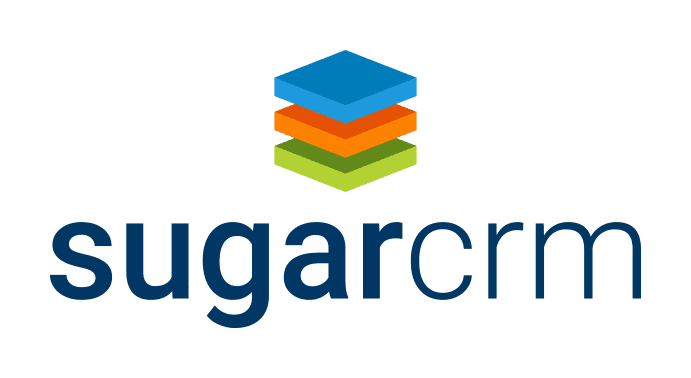When a robust and adaptable system is crucial to meet your business needs, it’s time to take a look at ERP. But as your company continues to grow and evolve, selecting and implementing an Enterprise Resource Planning system looms large. After all, an ERP implementation project remains one of the most critical and time-consuming projects a company can undertake.
That’s because a successful ERP selection requires careful planning and a thorough understanding of budgetary constraints, timeframes, personnel, and resource requirements. Choosing the wrong ERP system can lead to a costly and frustrating experience, ultimately resulting in the need to start the process again after just a few years.
According to industry reports, an average implementation duration takes 16.6 months, with 43% of implementations taking longer than initially planned. The gap highlights the complexity of ERP implementation and the importance of accurate timeline estimation.
But whether your organization is a global enterprise or a small company with a handful of employees, an ERP system can provide comprehensive functionality across all business processes, including finance, HR, distribution, and supply chain management.
A well-designed ERP system should streamline these processes through a single, unified database.
Top 6 mistakes companies make in ERP software selection:
- Insufficient planning and research: Failing to conduct thorough research and planning before embarking on the ERP selection process leads to choosing a system that doesn’t meet the organization’s needs, resulting in wasted resources and a suboptimal solution.
- Neglecting to involve key stakeholders: Not involving key stakeholders, such as employees from various departments, management, and IT personnel, leads to a lack of buy-in and resistance to the new system. Involving these stakeholders ensures that their perspectives and needs are considered, resulting in better adoption and satisfaction.
- Inadequate focus on business processes and requirements: Choosing an ERP system without fully understanding the organization’s unique processes and requirements can lead to a poor fit, causing inefficiencies and hindering growth.
- Overemphasis on cost or upfront savings: Focusing solely on the initial cost of the ERP system may lead to selecting a solution that lacks essential features or requires costly customizations in the long run. According to the report, 90% of organizations implemented some customization to their ERP system. High levels of customization contributes to increased costs and implementation complexity, emphasizing the importance of selecting a solution that closely aligns with the organization’s needs out of the box. Considering the total cost of ownership (TCO) and return on investment (ROI) is crucial to making a well-informed decision.
- Underestimating implementation complexity and timeline: Implementing an ERP system is complex and time-consuming. Underestimating the resources, time, and effort required for implementation leads to budget overruns, delays, and employee frustration.
- Overlooking the importance of vendor support and partnership: An ERP system is a long-term investment and a strong relationship with the vendor is essential for ongoing success. Reports showed that 50% of respondents were either “very satisfied” or “somewhat satisfied” with their ERP vendor. This gap leaves the other 50% as neutral or dissatisfied, highlighting the importance of evaluating and selecting a vendor that offers strong support and partnership for long-term success. Failing to evaluate the vendor’s support, responsiveness, and willingness to collaborate will create challenges during implementation, upgrades, and when addressing issues that may arise.
The ERP market has seen significant growth and diversification since the 1990s. However, it’s essential to exercise caution, as not all solutions marketed as ERP systems genuinely provide the full range of ERP functionality. While some providers offer powerful, full-scale ERP, others claim to provide ERP solutions that, in reality, only cover a small portion or extension of a complete system which makes the ERP selection process challenging and complex for businesses.
Even a system that offers full ERP functionality may not be the right fit for your industry or company. That’s where having a trusted vendor comes in.
ERP Project: Too big to fail?
ERP implementations are big projects. Big projects like this fail due to hasty and ill-informed decisions made during selection. In fact, the number of ERP implementation failures has remained a concern over the years. As early as 2001, a Robbins-Gioia survey of 232 companies across multiple industries found that 51% of respondents considered their ERP implementations unsuccessful.
A decade later, another consulting firm conducted a similar study and discovered that 72% of ERP system implementations were deemed failures. This significant increase in failure rate could be attributed to the growing demand for ERP systems in businesses and the scarcity of qualified experts to guide companies through the selection and implementation processes.
Then in 2022, a study conducted by Computer Economics found that 38% of ERP projects were considered unsuccessful or had mixed results, while 62% were deemed successful. What an improvement. Although there has been an improvement in the success rate compared to previous years, it’s still crucial to address the factors contributing to these failures.
The ongoing challenge of selecting and implementing the right ERP system may be attributed to the following:
- evolving market landscapes for changing needs
- increased complexities that require deeper strategies
- the need for more expertise to guide companies through the selection and implementation processes
Again, that’s where your trusted vendor comes in. By recognizing these challenges and learning from past mistakes, vendors and businesses can work towards improving their ERP implementation success rates and fully leverage the benefits of a well-suited ERP system.
To avoid falling into the same pitfalls, it’s crucial to invest time and resources in conducting a thorough ERP selection process, engaging qualified experts, and carefully considering the unique needs of your industry and organization.
By doing so, you significantly increase the likelihood of successful ERP implementation and enjoy what a well-suited ERP system brings to your business.

